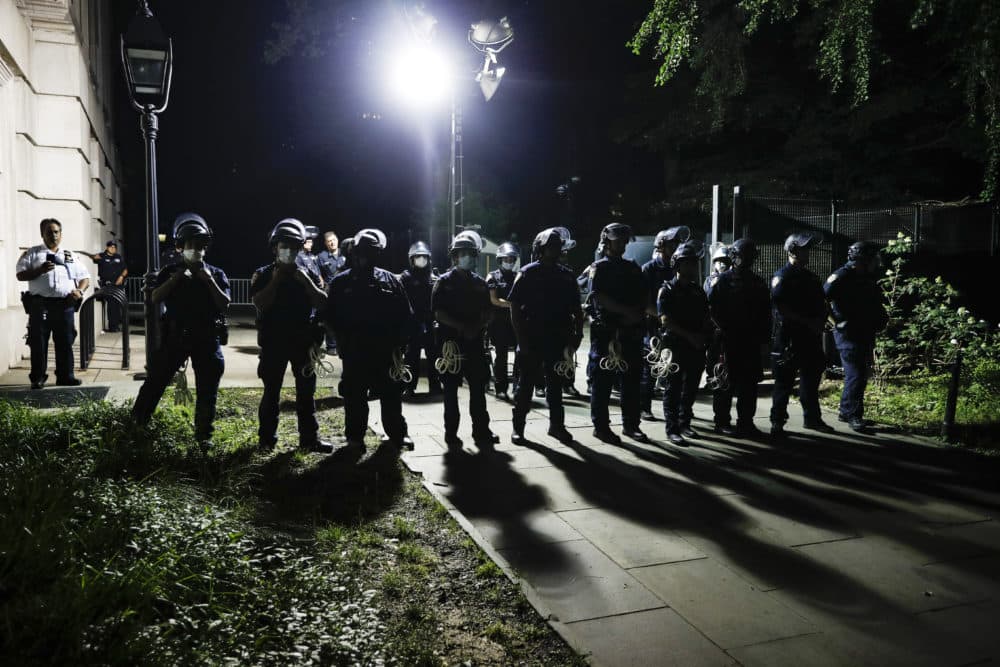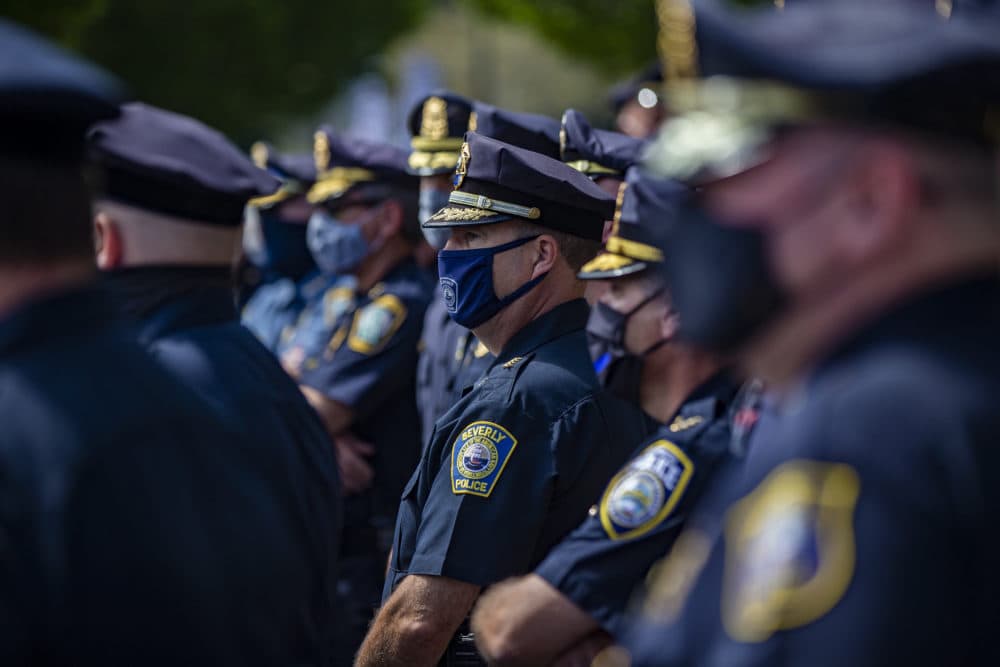Advertisement
Commentary
Want To Reform The Police? Get Rid Of Qualified Immunity

Consider these cases: After a woman gave police permission to enter her home, they broke through her windows and injected enough tear gas to make the home unlivable for months. Prison guards forced a man to live in a cell without a bed and covered in human feces and raw sewage. After searching a woman’s home for drugs and not finding any, police officers dragged her to a local hospital where, without her consent, a doctor searched her vagina — and also didn’t find any drugs.
Each of these people sued government officials for violating their rights. Each of their cases was dismissed — not because the government employees were innocent — but because a court found them to be immune from the lawsuits.
If government officials violate your rights, you can sue them in court. But an obscure legal doctrine called "qualified immunity" often shields those officials from liability, even when egregious violations have occurred. The Massachusetts Legislature is considering urgent and necessary reforms to qualified immunity.

Under the doctrine of qualified immunity, government officials can only be held liable for violating rights that are “clearly established.” You might expect that constitutional rights like your First Amendment right to free speech or your Fourth Amendment right against unreasonable search and seizure would be clearly established, but that’s not how it works. Instead, rights become clearly established only when a previously decided case involved nearly identical facts.
Here’s how that plays out. Let’s say a police officer orders you to put your hands up. You do so, surrendering to his authority. But the officer orders his police dog to bite you anyway. You sue. Unless, at some point in the past, a police officer also ordered a police dog to bite someone whose hands were up, and that person sued, and a court found a civil rights violation — you’re out of luck, case dismissed.
This sounds bad, but it gets worse. After your case is dismissed, if a police officer orders a police dog to bite another person whose hands are up, and that person sues, their lawsuit will also be dismissed. Why? Because the right is still not clearly established. After all, the judge dismissed your case without ever reaching the question of whether the police violated your rights. Because of qualified immunity, constitutional rights do not get clearly established, and the law freezes in place.
Qualified immunity lets the police off the hook for misconduct and denies their victims compensation.
One judge has aptly described the qualified immunity doctrine as, “Heads defendants win, tails plaintiffs lose.”
Qualified immunity lets the police off the hook for misconduct and denies their victims compensation. Police unions claim that qualified immunity exists to protect police officers who play by the rules. But it does the exact opposite. Qualified immunity only protects officials who have broken the law. Police officers who obey the law don’t need qualified immunity — they already are immune. If a police officer doesn’t violate a person’s rights, that person doesn’t have a legal claim against the officer. Ending or reforming qualified immunity won’t cause police officers who break the law to lose their homes and savings. Like most of the country, Massachusetts indemnifies police officers: The city or state covers the cost of these lawsuits.
In recent weeks, the House and the Senate each passed police reform bills. They must now negotiate a revised bill to put on Gov. Charlie Baker’s desk. The House bill would keep qualified immunity mostly intact, shielding officers unless they are decertified by a new licensing commission. The Senate bill is not as bold as, say, Colorado’s recent law ending qualified immunity outright, but the reforms it includes should give victims of government violence much more of a fighting chance. Under the Senate bill, qualified immunity would shield a government official from liability only when no reasonable official could have thought this conduct was legal.
Advertisement
Currently, qualified immunity is like a bingo card. Your case can proceed only if your rights violation matches up with a previous court case’s finding of a rights violation. The Senate bill changes this dynamic by tossing out the bingo card and relying more on judges’ judgment. Qualified immunity will still exist. But police officers will only be immune from a lawsuit if a judge determines that reasonable people would have thought that the officer’s actions were legal.
Whether the reform has real teeth will depend on how judges apply the law, if passed. In Marbury v. Madison, the foundational case of American constitutional law familiar to every judge in our Commonwealth, Chief Justice John Marshall wrote that the United States could not be considered a government “of laws, and not of men … if the laws furnish no remedy for the violation of a vested legal right.” Let’s hope our judges agree.
